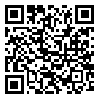BibTeX | RIS | EndNote | Medlars | ProCite | Reference Manager | RefWorks
Send citation to:
URL: http://hakim.tums.ac.ir/article-1-1325-en.html
Hekmatpou D1 (PhD), Ouroji MA2 (PhD Student), Shamsi M3 * (PhD)
1 Department of Nursing, Nursing and Midwifery, Arak University of Medical Sciences, Arak, Iran
2 Department of Health Education, School of Public Health, Tehran University of Medical Sciences, Tehran, Iran
3 Department of Public Health, Faculty of Health, Arak University of Medical Sciences, Arak, Iran
Original Article
Received: 19 Jan 2014, Accepted: 27 Apr 2014
Abstract
Introduction: Cigarette smoking is the leading cause of mortalities and preventable morbidities worldwide. The aim of this study was to assess the effect of an educational program designed based on the Transtheoretical model on self-efficacy and nicotine dependency among smokers.
Methods: In this randomized clinical trial, 110 smokers were randomly allocated into two experiment and control groups. Data were collected using the demographic checklist, the Veisler’s self-efficacy questionnaire and standard Fagershtrom questionnaire. The individuals in the experiment group received five individualized counseling sessions, NRT with nicotine chewing gum, telephone follow-up and self-help manuals. The participants were followed three and six months post intervention. Data were analyzed using the repeated measure analysis of variance, analysis of covariance and independent sample t-test.
Results: The F agershtrom nicotine dependency scores were 5.12 ± 2.12 and 5.49 ± 2.76 at baseline in the control and experiment groups, respectively. The mean was significantly decreased in the six months follow-up in the experiment group (p=0.02). The mean score of the self-efficacy was significantly increased after six months in the experiment group (p= 0.032).
Conclusion: C onsidering self-efficacy enhancing, counseling, nicotine replacement therapy and telephone follow-ups within the smoking cessation interventions are beneficent.
Key words: self-efficacy, smoking cessation, education, Nicotine dependency
Please cite this article as follows:
Hekmatpoue D, Ouroji MA, Shamsi M. Effect of an Educational Program based on Transtheoretical Model (TTM) on Self-efficacy and Nicotine Dependency among Smokers. Hakim Health Sys Res 2014 17(2): 159- 168.
* Corresponding Author: Arak University of Medical Sciences, Faculty of Health, Department of Health Education, Arak, Iran. Telefax: +098-861-3656445. E-mail: dr.shamsi@arakmu.ac.ir
Received: 2014/10/2 | Accepted: 2014/10/2 | Published: 2014/10/2
| Rights and permissions | |
 |
This work is licensed under a Creative Commons Attribution-NonCommercial 4.0 International License. |





